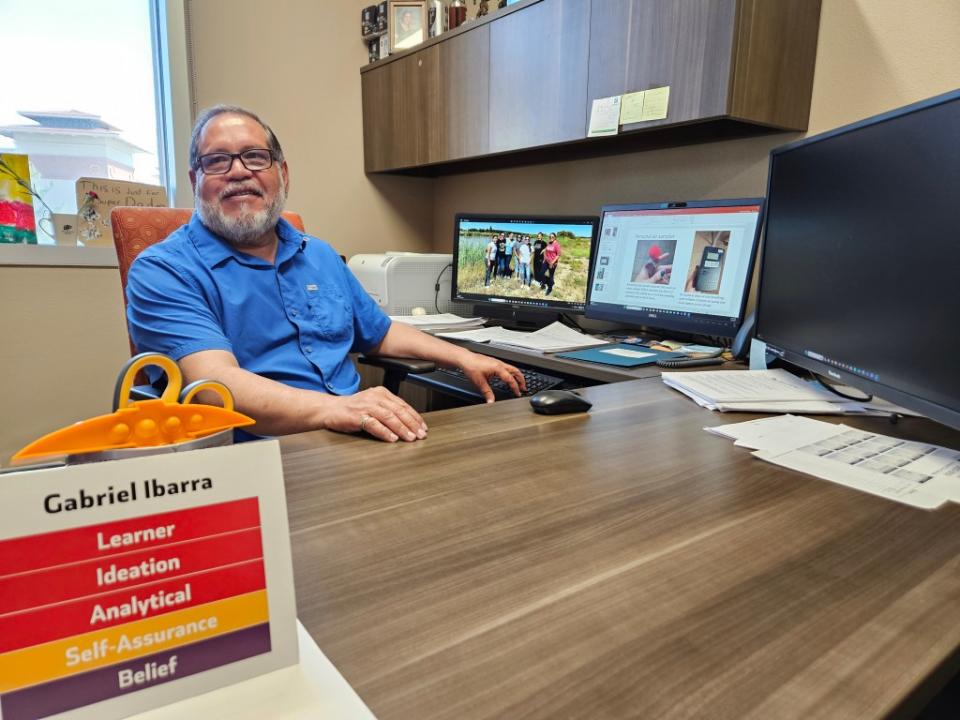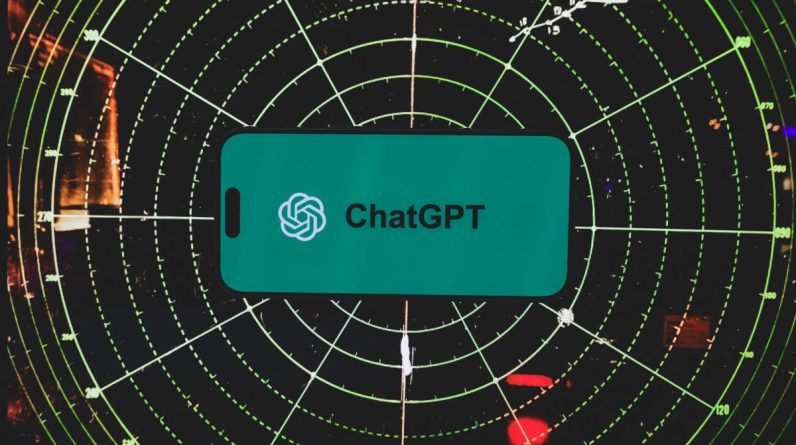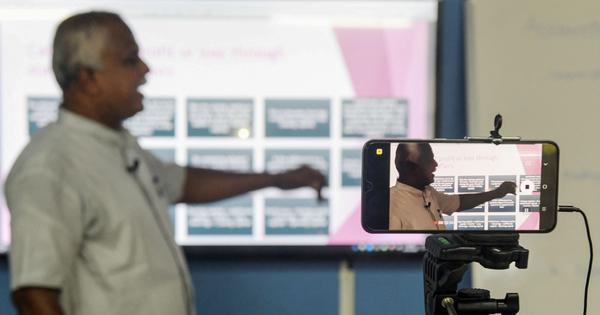This article was originally published in El Paso Matters.
A University of Texas at El Paso team plans to conduct a survey this spring and act on the data to offer UTEP instructors the necessary help to address the growing capabilities and complexities of artificial intelligence, including ChatGPT.
Jeff Olimpo, director of the campus’ Institute for Scholarship, Pedagogy, Innovation and Research Excellence, said the goal of this study will be to determine how much instructors know about AI and how comfortable they would be to incorporate the technology into their courses.
Armed with that knowledge, the InSPIRE team will develop a multi-pronged, hybrid effort to build on every level of understanding from basic tutorials to in-depth ideas to enhance instruction to include ways students can use AI in their fields of study.
Get stories like these delivered straight to your inbox. Sign up for The 74 Newsletter
This effort is the follow-up step to InSPIRE’s spring 2023 workshops that led to the university’s initial ChatGPT guidelines. Since then, the team has incorporated other concepts used at institutions within and beyond the University of Texas System.
“We essentially created a Frankenstein of sorts,” Olimpo said.
Jeff Olimpo, director of UTEP’s Institute for Scholarship, Pedagogy, Innovation and Research Excellence (UTEP)
The latest incarnation included recommendations of what might be appropriate to include in a syllabus such as if AI is prohibited, allowed or allowed with restrictions. The team also created a “Teaching with AI Technologies” guide that included a Frequently Asked Questions section that included AI restrictions, and procedures if the instructor suspected a student used AI in an assignment and did not credit the technology. The information was shared with faculty in January after it was approved by John Wiebe, provost and vice president for Academic Affairs.
Olimpo called the guidelines “brief, digestible and accessible,” and he stressed that instructors ultimately would decide what was best for their classes.
Gabriel Ibarra-Mejia, associate professor of public health sciences, was among the UTEP faculty who responded to the university’s recommendations. He said like it or not, ChatGPT (Generative Pre-trained Transformer) is part of the education equation now and he planned to embrace it to a point.
The professor said he allows students to use it in assignments as long as they cite its use and the reasons behind it such as to develop an outline or to polish the grammar or the report’s flow. What he does not want is for AI to replace thoughts and knowledge, especially from his students who may be health care professionals someday.
AI Support Can Prevent College Students from Failing STEM Classes, Study Shows
“I’m more concerned about how it might replace critical thinking,” said Ibarra-Mejia, who mentioned how he had received student papers where he suspected AI use because the responses had nothing to do with the question. “I’m concerned that the answers I get from a student might be from ChatGPT.”
Gabriel Ibarra-Mejia, associate professor of public health sciences at UTEP, said that he will allow students to use ChatGPT –with some restrictions — because it is an academic tool, but his concern is that it could lead to diminished critical thinking if used poorly. (Daniel Perez / El Paso Matters)
Melissa Vito, vice provost for Academic Innovation at UT San Antonio, said AI has been around for decades and that ChatGPT is part of the evolution. She is the lead organizer of an AI conference for UT System institutions this week at her campus.
“The consensus in higher ed is that instructors need to use it, and students need to understand it and be able to use it,” Vito said.
In 2021, members of Forbes Technology Council agreed that AI would influence all industries, but those tech leaders suggested that it would have the most effect on industries such as logistics, cybersecurity, health care, research and development, financial services, advertising, e-commerce, manufacturing, public transportation, and media and entertainment.
A research study released in March 2023 by OpenAI, the creator of ChatGPT, showed that approximately 80% of the U.S. workers could have at least 10% of their work affected by GPT, and that 19% of employees could see at least 50% of their jobs affected by it. The projected effects span all wage levels.
Melissa Vito, vice provost for Academic Innovation at the University of Texas at San Antonio (UTSA)
While unaware of any UT System mandates to use ChatGPT, she said institutions are creating opportunities for faculty to learn about it so they can explain its uses better to their students. She said the best path for higher education is to work with the AI industry to address concerns such as data privacy that could restrict access to what is produced and how it is used.
Vito referenced the January announcement of the collaboration between Arizona State University and OpenAI. Among the goals of that relationship is to introduce advanced capabilities to the institution, which will help faculty and staff to investigate the possibilities of generative AI, which can create text, images and more in response to prompts.
The UTSA official said the purpose of the AI conference is to bring together administrators, faculty, staff and students with the broadest AI competencies to share their experiences and create a strong framework for how the UT System can benefit from the transformative effects of generative AI academically and socially.
Marcela Ramirez, associate vice provost for Teaching, Learning & Digital Transformation at UTSA, helped develop the conference’s workshops and panel discussions with representatives from sister institutions. They will cover ethical use, practical applications and how AI can be used to help students with critical thinking and problem-solving skills.
Ramirez, a two-time UTEP graduate who earned her BBA in 2008 and her MBA five years later, said the content will support faculty who want to update their courses with AI, and help them to be able to explain to students AI’s current limitations and future opportunities.
“What are the lessons learned,” asked Ramirez, who worked at UTEP for more than 10 years. “And what’s next?”
This article first appeared on El Paso Matters and is republished here under a Creative Commons license.











